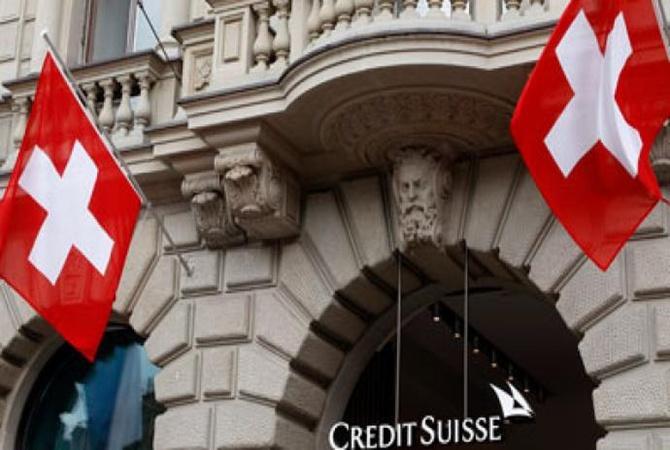 | « Back to article | Print this article |
Swiss tax pacts: Can India catch the biggest tax defaulters?
Switzerland finally signed an agreement to exchange information on potential money launderers and tax dodgers last week but neither this nor a modified tax avoidance treaty is likely to help India, says Nigam Nuggehalli.
The Swiss banking regime is in the news again with the announcement that Switzerland finally decided to sign, on October 16, the Organisation for Economic Co-operation and Development-sponsored Multilateral Convention on Mutual Administrative Assistance that provides for a liberal exchange of information between countries on potential money launderers and tax dodgers.
As usual, appearances are deceptive. Switzerland will not be subject to a liberalised information exchange regime without a further discussion in and eventual ratification by the Swiss parliament.
Therefore, the scope and timing of Switzerland's participation in a regime that enables transparent exchange of information remain uncertain.
Until then, in order to access information on Indian-source money stashed by tax dodgers and money launderers in Swiss banks, India has to depend on the double taxation avoidance agreement (DTAA) that went through certain revisions in 2000 and 2010.
Click NEXT to read more...
Swiss tax pacts: Can India catch the biggest tax defaulters?
The original and revised versions present a fascinating insight into, on the one hand, the evolution of India as a country attractive to foreign investment and, on the other hand, India's traditional obsession with untaxed money in Swiss banks.
When India and Switzerland signed a DTAA in 1995, India obtained a substantial right to tax interest, royalties and dividends paid by Indian residents to Swiss residents and companies.
Therefore, India had a favourable treaty to begin with but gradually any tax advantage was whittled down through negotiated modifications. In 2000, India and Switzerland agreed to lower Indian tax rates on dividends, interest, royalties and payments for technical services.
In 2010, Switzerland got the "most favoured nation" (MFN) status regarding any interest, dividends and royalty payments received by its residents, ensuring that if India signed more favourable tax treaties with other countries, the same favourable treatment would be applicable to Swiss enterprises as well.
Click NEXT to read more...
Swiss tax pacts: Can India catch the biggest tax defaulters?
In return, India received, on the face of it, a more expansive exchange of information provision under which Switzerland agreed to exchange information between tax authorities even if the information pertained to bank accounts in Switzerland.
Previously, the exchange of information provision was a boilerplate one that did not compel Swiss authorities to provide information on individual bank accounts. Under the new provision, India and Switzerland have agreed to exchange information that is "foreseeably relevant" to the collection of taxes in their respective countries.
The new exchange of information provision explicitly states that Switzerland may not decline to provide information solely on the basis that a bank in Switzerland holds the information.
Before discussing the impact of these modifications, it is worth reflecting on what changed between 1995 and 2010. The Indian economy opened up and became more attractive to Swiss investors while exposing, at the same time, Swiss investors to greater taxation on income received from their Indian investments.
Click NEXT to read more...
Swiss tax pacts: Can India catch the biggest tax defaulters?
Concurrently, there was a gradual worldwide condemnation of tax havens and countries with banking secrecy laws.
If one scrutinises the last two modifications to the India-Switzerland DTAA, it is hard not to arrive at the conclusion that Switzerland got the better end of the deal. Switzerland received a concrete reduction in withholding rates on dividends, royalties and interest and MFN treatment for its enterprises investing in India.
In return, India received a more liberal exchange of information agreement, but it has two fatal flaws.
The exchange of information provision in the DTAA depends on the Indian revenue department's ability to identify potential tax defaulters and seek more information from the Swiss authorities.
The wording of the provision deliberately mentions that any exchange of information must be pursuant to an investigation and requires the Indian authorities to furnish proof that the information requested is "foreseeably relevant" to tax evasion by an Indian national.
Click NEXT to read more...
Swiss tax pacts: Can India catch the biggest tax defaulters?
While there is no doubt that Indian revenue authorities would, in fact, make use of this exchange of information provision, their ability to investigate and target the biggest tax defaulters, among them potentially powerful political figures, is in doubt.
The exchange of information provision also represents the Swiss authorities' reluctance to agree to a regime of automatic exchange of information that forces financial institutions in a country to automatically gather and transmit data to tax authorities regarding their account holders, regardless of whether account holders are under tax investigation.
International pressure on tax havens might force the Swiss authorities to commit to automatic exchange of information either bilaterally or multilaterally, but currently the Swiss administration remains reluctant to agree to such a provision.
What are India's options going forward? Internationally, three kinds of pressures are being applied on the Swiss administration. Unfortunately, none of these is feasible for India.
The first, followed by the UK, is to give Swiss banks the choice to pay a withholding tax on their deposits and continue to keep the identities of the account owners secret and protected from potential UK investigation for tax evasion.
Click NEXT to read more...
Swiss tax pacts: Can India catch the biggest tax defaulters?
The second approach, followed by the US, is to threaten to impose a 30-per cent withholding rate for any US-source payments to a Swiss bank unless the Swiss bank provides US authorities with details about the US nationals or residents who have deposited money into Swiss banks.
This is not confined to Swiss banks alone but is a worldwide initiative by the US to unilaterally impose an automatic exchange of information regime through a law passed in 2010 commonly termed the Foreign Account Tax Compliance Act (FATCA).
Finally, a rather more extreme measure, adopted by the US, would be to prosecute Swiss banks unless they pay a certain amount of compensation to the origin country's government, and agree to provide information on their account holders going forward. Unlike FATCA, the punishment for banks is not a withholding tax but criminal prosecution potentially followed by imprisonment and punitive fines for the persons involved in tax evasion.
None of these measures are feasible for India, mainly because India lacks the financial and investigative muscle to enforce these options. The first measure does not work unless there is a credible threat of investigation and prosecution of Indian nationals who have accounts in these banks.
Click NEXT to read more...
Swiss tax pacts: Can India catch the biggest tax defaulters?
This brings us back to the lack of prosecutorial zeal by Indian revenue authorities when it comes to powerful politicians and businessmen. The second measure requires Indian source income to be a substantial component of the Swiss banks' revenue in order to be practically enforceable, and this is not the case currently.
The third measure also requires a situation where Indian authorities can attach substantial Indian property and/or Indian source income if they succeed in prosecuting Swiss banks, which, again, is not the case.
This situation is unlikely to improve, at least in the short term, and therefore, paradoxically, one must look inwards to solve the problem of money going out of India.
Much of the money stashed outside India comes back in various forms, including foreign direct investment (FDI) and investments into Indian financial products.
The problem, therefore, is not merely that of untaxed money in India leaving India permanently but that of untaxed money continuing to operate within India, but in a way that is not transparent to the tax authorities./>
If the revenue department were to focus on how to identify the beneficial owners of investments into India, this would have a ripple effect on the amount of money that goes out of India.
Once again, in targeting such abuse, the revenue department has not been very diligent but, at least, in this case, it is not chasing Swiss ghosts who might never surface.
(The writer is Principal Lecturer, BPP Law School, London. A version of this paper was presented at a symposium on economic crime held in Cambridge University, UK in September 2013)







